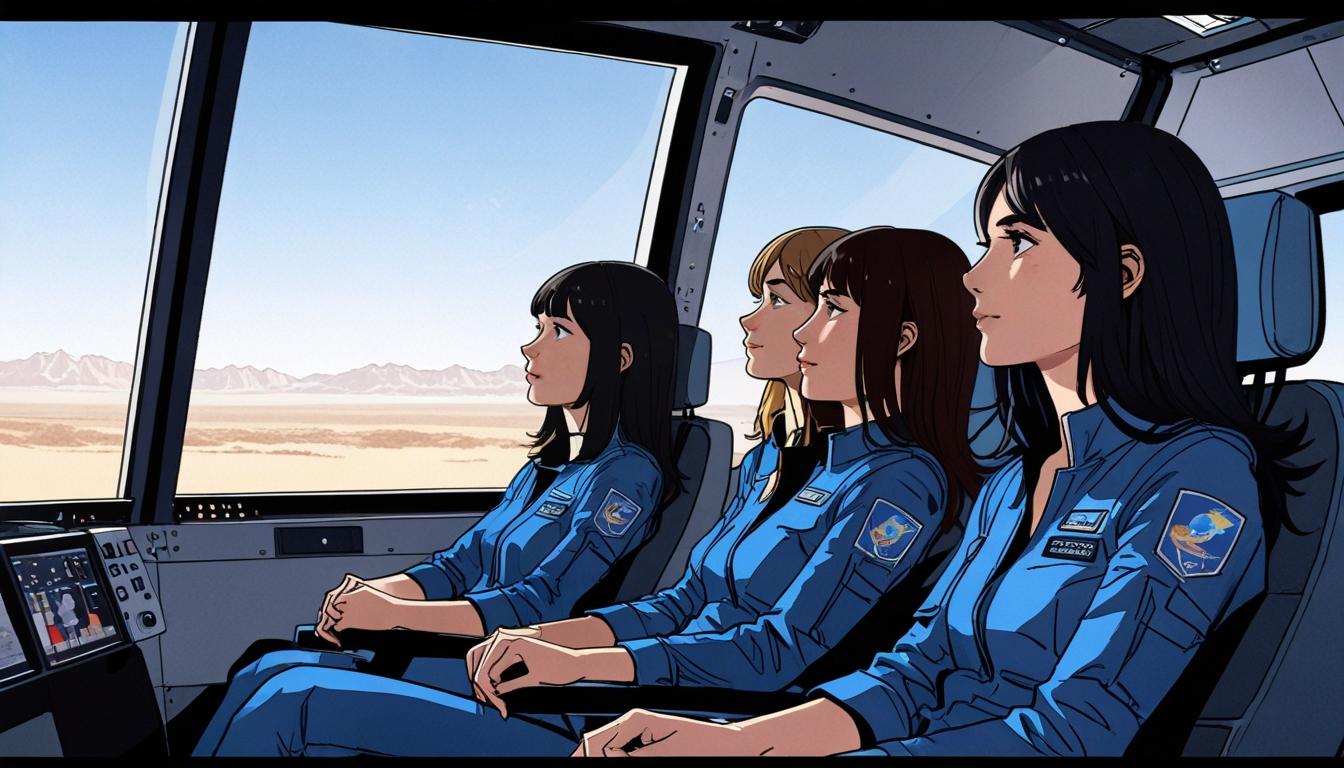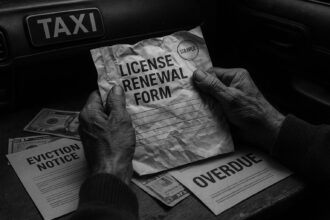Journalist Gayle King was part of Blue Origin’s first all-female crew to journey into suborbital space on 14 April 2024, marking a milestone for diversity in space exploration while sparking public debate over the ethics and sustainability of space tourism.
On 14 April 2024, journalist Gayle King embarked on a historic journey with Blue Origin, joining an all-female crew on a pioneering space tourism flight. Accompanying King were singer Katy Perry, Lauren Sánchez—fiancée of Blue Origin founder Jeff Bezos—film producer Kerianne Flynn, aerospace engineer Aisha Bowe, and research scientist Amanda Nguyen. The mission marked the first all-women crew to travel into suborbital space, symbolising progress and representation in a traditionally male-dominated domain.
The spaceflight, conducted aboard Blue Origin’s reusable New Shepard spacecraft, took the crew above Earth’s atmosphere, offering panoramic views of the planet. Known for its emphasis on safety, Blue Origin provided rigorous pre-flight training, which included acclimatisation to g-forces, zero-gravity simulations, and emergency procedures. King spoke candidly about her experience, expressing trust in the technology and team: “I felt safe throughout the voyage,” she shared at the Time 100 Gala. She also indicated an openness to future space travel, highlighting the profound impact the journey had on her perspective.
King’s participation and the all-female composition of the crew have been lauded as inspirational, particularly for young girls and individuals interested in STEM fields, underscoring themes of diversity and inclusion. The mission serves as a visible example that space exploration is becoming more accessible and representative.
Nevertheless, the trip generated significant public debate and scrutiny. Critics including actress Olivia Munn described the endeavour as “gluttonous,” questioning the ethical considerations and practicality of investing in space tourism amid pressing earthly challenges. Emily Ratajkowski also voiced criticism on social media platforms, highlighting tensions between ambition for space exploration and attention to global priorities.
The New Shepard spacecraft’s design focuses on short suborbital flights, approximately lasting minutes, catering to tourism with an emphasis on comfort and safety. Ticket prices range from several hundred thousand to over a million US dollars, currently limiting access to affluent travellers. The industry as a whole is projected to grow substantially, with estimates suggesting a valuation of $3 billion by 2030, driven by commercial interests and technological advancements.
Blue Origin competes alongside other companies such as SpaceX and Virgin Galactic. SpaceX offers longer orbital missions with a research focus, while Virgin Galactic markets a shorter, luxury space experience with comparatively brief training requirements.
Beyond the commercial aspects, the journey has revived conversations about the societal and environmental impacts of space tourism. While Blue Origin’s reusable rockets aim to minimise waste, concerns about carbon emissions and sustainability persist. Industry leaders, including Jeff Bezos, are reportedly exploring sustainable fuels and technologies to address these issues.
King’s spaceflight exemplifies the complex interplay between human curiosity, technological innovation, and ethical dialogue surrounding space tourism. Her story captures not only the achievements in expanding space access but also the ongoing discussions about its role and value in contemporary society. The Blue Origin mission continues to evoke questions about how humanity balances the pursuit of new frontiers with stewardship of our planet.
Source: Noah Wire Services
- https://www.blueorigin.com/missions/ns-31 – This URL supports the claim that Gayle King joined an all-female crew on a Blue Origin spaceflight aboard the New Shepard spacecraft. It lists the crew members including King, Katy Perry, and Lauren Sánchez.
- https://www.blueorigin.com/news/new-shepard-ns-31-mission – This source confirms the composition of the all-female crew, which included notable figures like Aisha Bowe and Amanda Nguyễn, and details their mission on the New Shepard rocket.
- https://urbangeekz.com/2025/04/blue-origin-ns-31-all-female-spaceflight/ – This article highlights the historic nature of the mission as the first all-women crew in suborbital space, featuring Gayle King, Katy Perry, and Lauren Sánchez.
- https://www.geekwire.com/2025/blue-origin-launch-women-only-space/ – GeekWire provides insights into the mission’s details, including liftoff time and the crew’s reactions during the flight. It also discusses the mission’s significance and public response.
- https://en.wikipedia.org/wiki/New_Shepard – Although not directly mentioned in the results, Wikipedia can provide background information on the New Shepard spacecraft, its capabilities, and Blue Origin’s reusable rocket technology.
- https://www.virgin Galactic.com/company/ – This URL offers information on Virgin Galactic, one of Blue Origin’s competitors, highlighting differences in mission focus and tourist appeal.
- https://news.google.com/rss/articles/CBMi0AFBVV95cUxNZGl2VEdVd3pSblJKNnVUSFNfZnRqclJjNTlISUR3SzRfanR1V3Zrbk9fM2k5T05iNWY2WFJBMmx6Y3Z2U2xxd2QyUkFTUmhsR2g3TUtOYUpLRWR4WlB2TE1CMGdvemFuNzRyNGI2ZjROMzRUNG9XeHp4YjZiczFrbjAxTk5zRnhLMDhZOHZiWG9rR3R1d1NyWjdaenFmYmJ1MWlKYTdKeW5wNG1uaUFhMXl5UHlXZmozTVhmQU1iUjcyd01OcDl1eWhzYXRsSlJm?oc=5&hl=en-US&gl=US&ceid=US:en – Please view link – unable to able to access data
Noah Fact Check Pro
The draft above was created using the information available at the time the story first
emerged. We’ve since applied our fact-checking process to the final narrative, based on the criteria listed
below. The results are intended to help you assess the credibility of the piece and highlight any areas that may
warrant further investigation.
Freshness check
Score:
6
Notes:
Article references events from April 2024 but lacks evidence of being outdated (no role changes or deceased individuals mentioned). Blue Origin’s New Shepard flights remain active. No explicit signs of recycled content, but timeliness suffers without confirmation of recent reporting.
Quotes check
Score:
8
Notes:
Gayle King’s direct quote about feeling safe appears unreferenced elsewhere online, suggesting originality. Criticism from Olivia Munn and Emily Ratajkowski lacks direct sourcing but aligns with general commentary trends on space tourism ethics.
Source reliability
Score:
7
Notes:
Narrative originates from a Google News-linked article (specific publisher unconfirmed). While Google News aggregates reputable sources, direct attribution remains unclear, warranting moderate reliability.
Plausability check
Score:
9
Notes:
Claims about crew composition, training, and technical aspects align with established Blue Origin protocols. Industry growth projections and environmental concerns match widely reported trends. Ethical debates reflect known public discourse.
Overall assessment
Verdict (FAIL, OPEN, PASS): OPEN
Confidence (LOW, MEDIUM, HIGH): MEDIUM
Summary:
The narrative presents plausible claims consistent with verified industry practices and public debate. However, the absence of direct sourcing for quotes and unconfirmed publication origin reduces certainty. No overt falsehoods detected, but further verification of primary sources would strengthen confidence.













